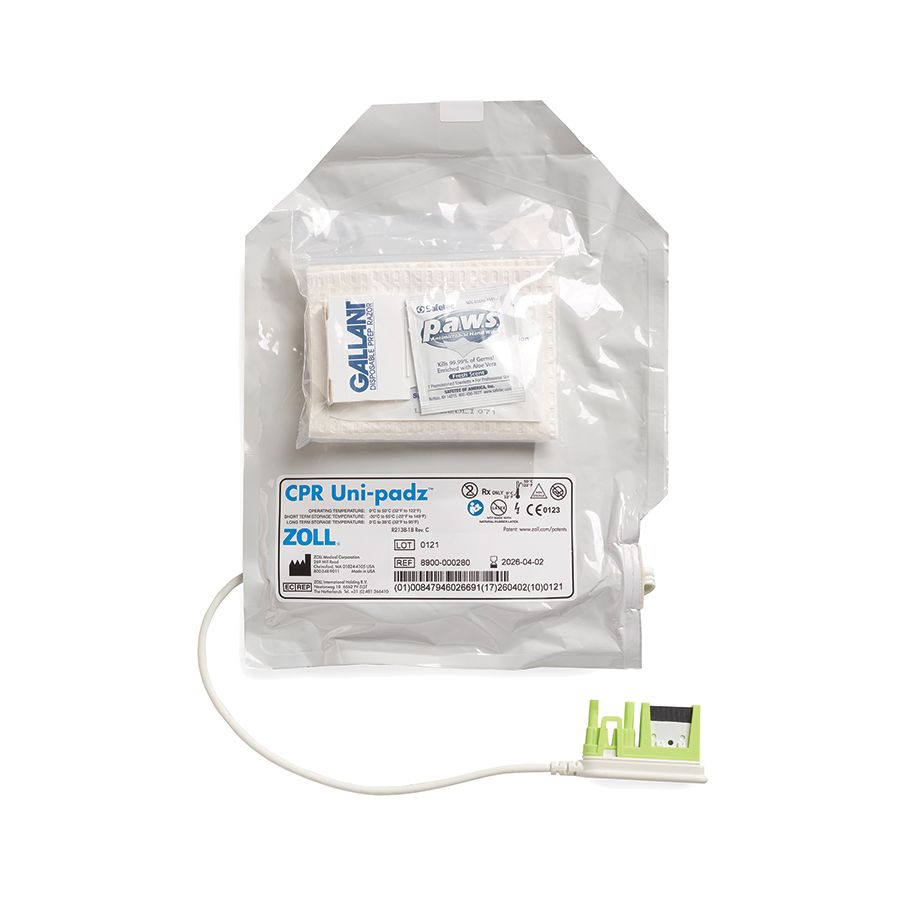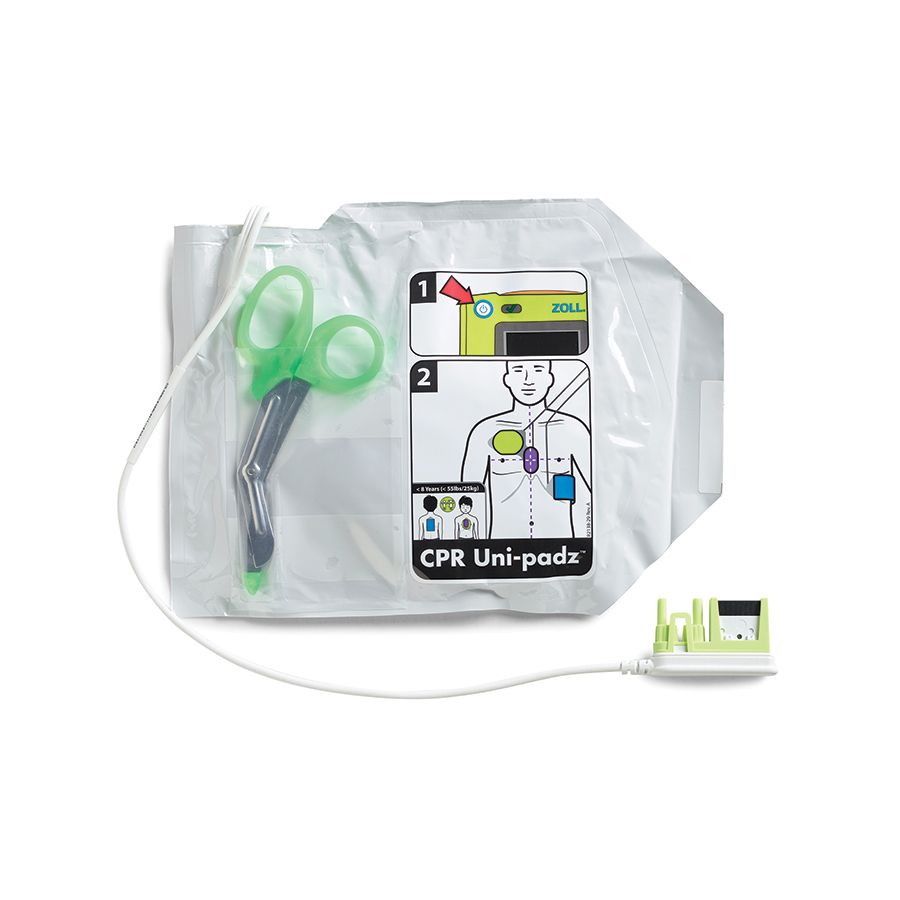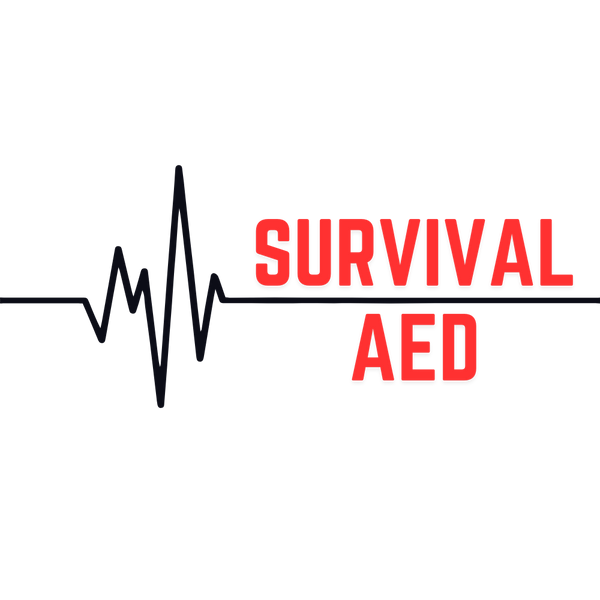Zoll
Zoll CPR Uni-padz
Zoll CPR Uni-padz
Couldn't load pickup availability
Only 5-year AED electrodes that can be used for both adult and child patients
For use exclusively with the ZOLL AED 3™, CPR Uni-padz™ electrodes have an industry-leading shelf life of five years and can be used on both adult and child patients, so there is no need to maintain two separate sets of pads.
The ZOLL AED 3 full-color LCD display includes graphics that coincide with the electrode shapes and colors to support proper pad placement on both adults and children.
By simply repositioning the pads and activating the Child Mode on the ZOLL AED 3, CPR Uni-padz can be used to treat child patients 8 years of age or younger or under 55 lbs. (25 kg.).
CPR Uni-padz are pre-connected to the ZOLL AED 3 for fast deployment. The CPR landmark includes guidance for proper hand placement and provides ZOLL’s exclusive Real CPR Help® feedback.*
Real CPR Help
Inadequate compression rate and depth are common during CPR. Adult victims require 100 to 120 CPR compressions per minute and at a depth of between 2 to 2.4 inches (5 to 6 cm). Compressions must be done well to effectively move oxygenated blood to the heart and brain.
The ZOLL AED 3™converts compression data instantaneously from the CPR Uni-padz and provides voice, text and real-time visual feedback to help the rescuer on proper CPR rate and depth. Real CPR Help instructs the rescuer to "Push harder" if compressions are too shallow or encourages "Good compressions" if compression depth is within guidelines. It also shows CPR compression depth in real-time via a bar gauge on the full-color display screen, allowing the rescuer to adjust depth on the very next compression if needed.
Everything You Need for the Rescue
The CPR Uni-padz come complete with a CPR barrier mask, scissors, disposable gloves, a prep razor, a towel, and a moist towelette.
*CPR depth feedback is disabled for pediatric patients. Compression depth guidelines for pediatric patients varies depending on the size of the child.
Share






